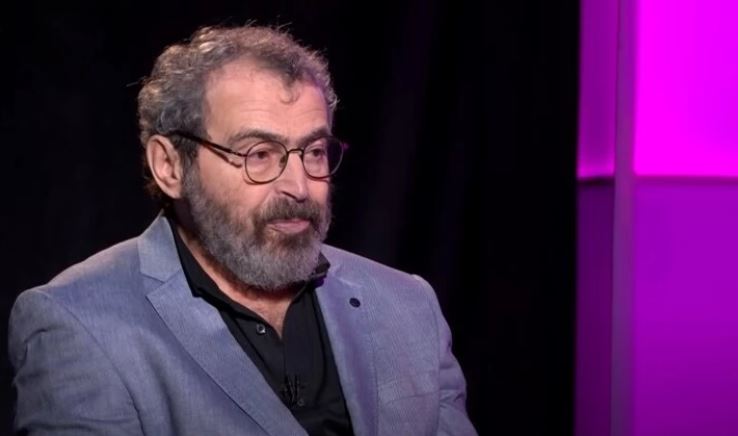What are the messages from Ilham Aliyev’s latest interview and to whom are they addressed? - a talk with Arkady Dubnov at 20:00

In an interview aired on January 7, Azerbaijani President Ilham Aliyev delivered a scathing critique of the West, singling out the United States, France, and the European Union. The question of who these remarks were directed toward and their broader implications was addressed by Arkady Dubnov, a political analyst and Central Asia expert, during the program “Difficult Question.”
Dubnov interprets Aliyev’s sharp tone toward the Biden administration as reflective of shifting dynamics in U.S. politics. “Aliyev felt emboldened to make such remarks because the Biden administration is on its way out, and a Republican administration under Donald Trump is poised to take office,” Dubnov explained.
He described the transition in the U.S. as a “turning point in American politics,” with significant implications for global power structures. According to Dubnov, Aliyev’s criticism of the Biden administration was something he likely held back before the U.S. presidential elections in November, where Vice President Kamala Harris lost to a Republican challenger.
“Aliyev seems to be expressing grievances that he refrained from airing before November 5,” Dubnov noted, adding that such rhetoric may have long-term consequences: “The world doesn’t easily forgive this level of candor. Who knows how it might resonate in four years?”
Aliyev’s remarks revealed deep frustration with what he perceives as the Biden administration’s neglect of U.S.-Azerbaijan relations in favor of Armenian-American ties. This, according to Dubnov, was a cornerstone of Aliyev’s message.
Touching on Trump’s attitude toward human rights and democratic values, Dubnov remarked, “Trump has never shown much respect for such principles. Leaders like Aliyev, who are sensitive to criticism on these issues, likely take satisfaction in knowing they won’t face such scrutiny anymore.”
Despite Aliyev’s critical stance, Dubnov cautioned against expecting a swift change in U.S. policy toward the South Caucasus under Trump’s administration. “While the South Caucasus is on the U.S. radar, it is not among its top priorities,” he observed.
Aliyev’s criticism of French President Emmanuel Macron and his policies toward Armenia reflects longstanding tensions. Dubnov argued that any French president, not just Macron, would adopt a similar pro-Armenian stance.
“France is one of the most Armenia-oriented countries in the world, alongside the United States. The reasons for this are well-known,” Dubnov said. He attributed Aliyev’s sharp criticism of Macron to France’s bolstered ties with Armenia under his leadership, including an arms supply agreement.
In an unexpected turn, Dubnov speculated that Aliyev’s branding of Armenia as a “fascist state” might stem from a sense of moral superiority over Moscow following the December crash of an Azerbaijani plane.
Dubnov’s analysis underscores the complexity of Aliyev’s remarks, framing them as a blend of domestic and international grievances aimed at multiple audiences. As Azerbaijan navigates its relationships with global powers, Aliyev’s words serve as both a warning and a strategic signal.
10.01.2025 12:04
 Latest news
Latest news Latest news
Latest newsTrump and Putin Prepare to Meet Ahead of Zelensky’s White House Visit: A New Phase of Diplomacy or Pressure on Kyiv?
17.Oct.2025
A Shadow over the Russian-Azerbaijani Thaw: What Lies Behind the Arrest of Former Presidential Chief of Staff Ramiz Mehdiyev?
16.Oct.2025
Russia and Syria: A New Chapter in Relations After the Coup
16.Oct.2025
NATO and EU Join Forces to Build a “Drone Wall”
15.Oct.2025
Trump: New bonds of friendship to join Armenia to Azerbaijan
14.Oct.2025
UK to lift its arms embargo on Armenia, Azerbaijan
14.Oct.2025
Russia Opens New Criminal Case Against Opposition Figure Khodorkovsky
14.Oct.2025
Expert analysis by Tigran Khzmalyan: If Pashinyan wins again, Armenia will fall completely under Russia’s influence
14.Oct.2025
The Kremlin Warns the West of Dangerous Escalation: U.S. Plans to Supply Tomahawk Missiles to Ukraine
12.Oct.2025
Moscow Admits Guilt for Downing Azerbaijani Plane: Putin and Aliyev Show “Mutual Understanding of Authoritarian Allies”
10.Oct.2025

 21 Oct 2025
21 Oct 2025








